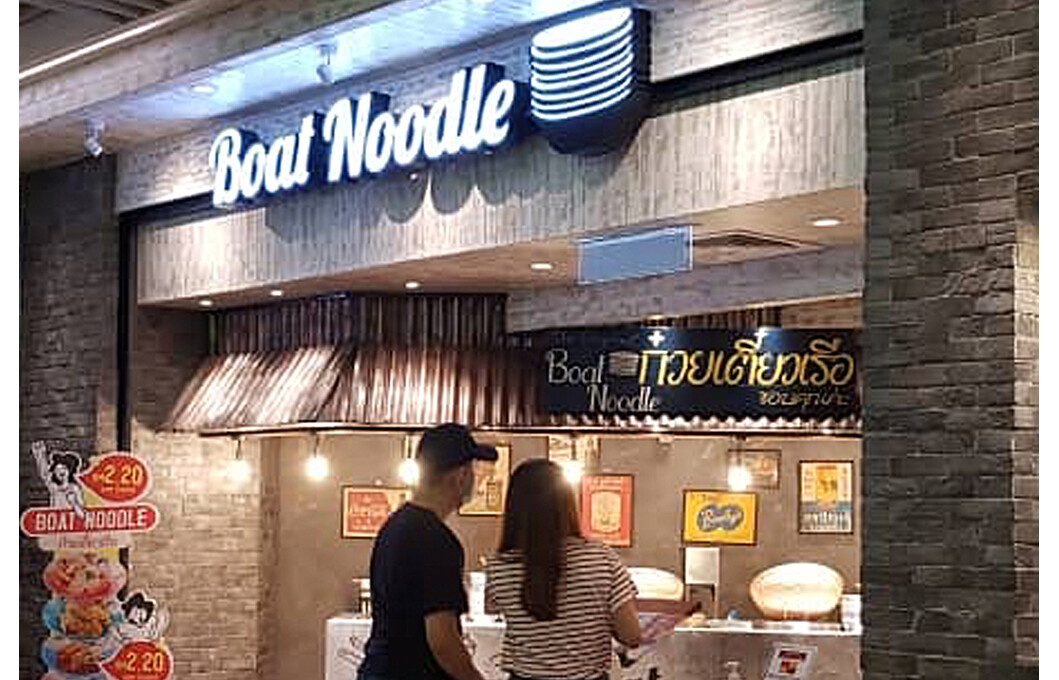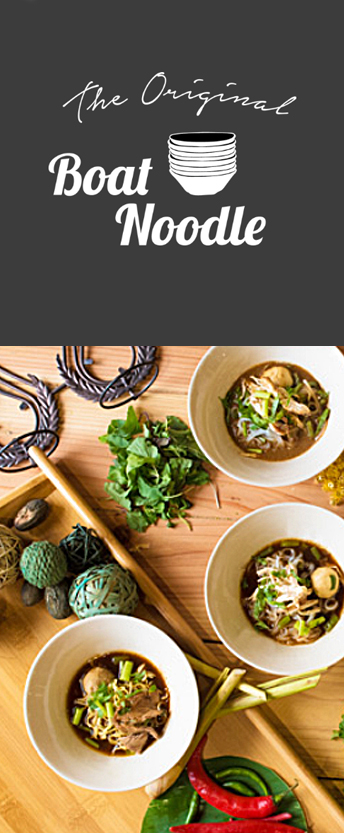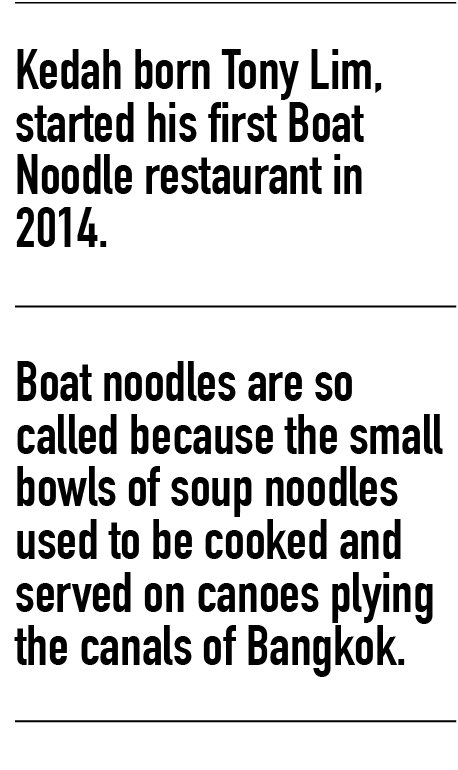Boat Noodle now part of Japan’s Toridoll Group

Kedah born food entrepreneur Tony Lim, 41, started his first Boat Noodle restaurant in 2014 at Empire Damansara, Klang Valley. Within two years he had 13 Boat Noodle restaurants, halal certified, and attracted the attention of Japan’s biggest noodle operator, Toridoll Holdings which is listed on the Tokyo Stock Exchange. Kobe-based Toridoll, led by its dynamic founder, Takaya Awata, (President of the Toridoll group), was on the lookout for acquisitions to expand outside Japan where it already had more than 1000 eateries under various brands, the chief of which was the Marugame Seimen chain of Sanuki udon restaurants (more than 850 outlets in Japan). Toridoll paid RM30 million to Tony Lim’s holding company Utara 5 Food & Beverage Sdn Bhd (USFB) in 2016 for a 40% stake with an option to take up further shares and today, Boat Noodle is a subsidiary of Toridoll, Japan. Takaya-san also controls Yunnan Mixian and Tam Jai Samgor Mixian, the popular Yunnan noodles chains in Hong Kong and has about 70% of noodle market share.
Malaysians can learn a lesson or two from Tony Lim and his success with Boat Noodle. An engineer by training, he ventured into F&B business by accident as he was helping a family member, Lim Nara, CEO of Brand Management, to set up the Chatime franchise in Cambodia in 2013. Tony comes from a family business in logistics, E.H. Utara Holdings , a regional inland and cross border logistics company with offices in Malaysia, Thailand, Singapore, Cambodia and Laos. Married to a Thai national, Tony and wife were keen to set up a Thai food business in Malaysia. The wife wanted an authentic Thai restaurant with good Thai chefs in the kitchen. Tony felt the business model would be difficult to scale up and too many stories of chefs abandoning the establishment thereafter, leaving restaurant owners in the lurch, was scary enough for entrepreneurs. He surveyed the local food scene and saw an opportunity to bring the popular Bangkok boat noodles to Malaysia because there was no restaurant plying the trade here.
Boat noodles are so called because the small bowls of soup noodles used to be cooked and served on canoes plying the canals of Bangkok and Ayutthaya but which are now served in restaurants along the Ayutthaya river bank in Bangkok. It catered to all levels of appetites. If you only want a small portion, then a small bowl meets your needs. Those who can eat more and want to try varieties can do so and you will observe how the stacked up little bowls on customers’ tables is itself a draw to passers by. The popularity of this comfort food has not waned. When Tony Lim started Boat Noodle in 2014, he included in the menu other popular Thai Street food, the recipes of which he bought from Thai restaurant operators. His venture bore fruit. There are now about 50 outlets in Malaysia and still growing at last count.
What will the food scene look like in the post covid-19 scenario? Will things eventually return to normal because restaurants need crowds and the New Normal is social distancing. The greatest challenge is felt by Takaya-san of Toridoll, the major shareholder of Boat Noodle in Malaysia and the Yunnan noodles chain in Hong Kong. He could not have foreseen the twin black swans of the coronavirus pandemic and the Hong Kong democracy protestors bringing such a concerted blow to his noodle chain businesses in these two territories of Toridoll’s operations besides the emergency situation in Japan. But Takaya-san is not alone.





